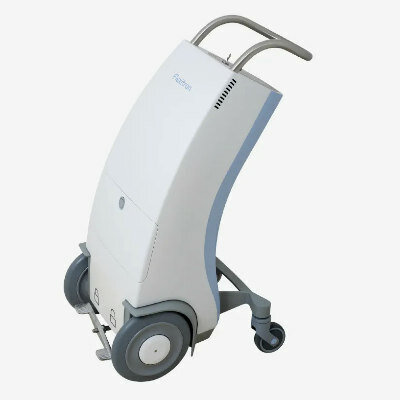Single Functional MRI Scan Could Help Diagnose Bipolar Disorder
By MedImaging International staff writers
Posted on 29 Jul 2010
A single magnetic resonance imaging (MRI) scan may soon help a vast majority of people with bipolar disorder (BPD) to get a faster, more accurate--and possibly life-saving--diagnosis, according to a leading U.S. researcher.Posted on 29 Jul 2010
Prof. Mary Phillips, professor of psychiatry and director of the Clinical and Translational Affective Neurosicence Program at the University of Pittsburgh (PA, USA), reported that missed and delayed diagnosis was a major problem with bipolar disorder. She noted, "Only one in five sufferers are correctly diagnosed at first presentation to a doctor and it can take up to 10 years before suffers receive a correct diagnosis.”
A major problem for clinicians is the difficulty of differentiating between unipolar (normal) depression and bipolar disorder. Prof. Phillips explained, "The problem is that sufferers [of bipolar disorder] frequently fail to tell their doctors about hypomanic phases because they can be experienced as quite pleasant or judged not to be abnormal at all.”
However, research performed at Pittsburgh has shown that BPD may soon be more accurately diagnosed with a combination of a functional MRI, which scans the brain's neural pathways, as well as a diffusion tension imaging (DTI), which scans the brain's white matter.
Prof. Philips reported that fMRI scans of the brains of individuals who are suffering depression or bipolar disorder show ‘functionally coupled' activity in two regions of the brain, the amygdala, which processes emotions, and the prefrontal cortex, important for emotional regulation.
Prof. Phillips' study involved MRI scans comparing brain function in two groups of people, one group with bipolar disorder, and the other with depression. It revealed that the two types of depression appear to be easily distinguished "by a very different and distinct pattern of brain activity.” She continued, "If there's a plan to do just one MRI in the future to try to decide whether someone has bipolar or depression, I'd suggest focusing the right prefrontal cortex. If there is any abnormality in functioning between the right and prefrontal cortex and right amygdala, the chances are that the person has bipolar.”
Prof. Phillips suggested that the scans might also be used at some point to predict a future onset of bipolar disorder in young people who are not yet affected by the disease. She reported the study's findings at the Royal College of Psychiatrists' International Congress, held in Edinburgh, Scotland, June 21-24, 2010.
Related Links:
University of Pittsburgh













